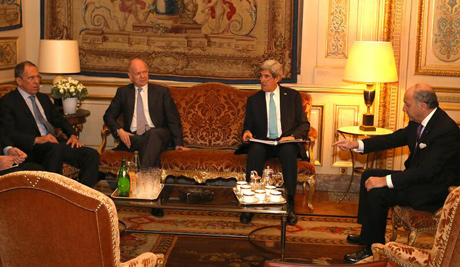I’ve talked before about the events in Kiev, at a time when they reminded me of the fall of the Berlin wall, and the extraordinary surge of freedom and independence that happened after that in Eastern Europe. Since then, things have got more difficult, because we’ve had what is obviously an intervention of Russian armed forces in Crimea, and now the prospect – in a very unrealistic timeframe – of an illegal
referendum in Crimea on rejoining Russia.
Written version (continued)
There has been intense diplomatic activity going on. In Paris recently we’ve had William Hague and the other major Foreign Ministers for a day of meetings trying to find a way of establishing a contact group which would bring the Russian and Ukrainian authorities together, with the other countries concerned like the UK and France, to talk directly about how to get back to a position where difficulties can be sorted out around a negotiating table.
It’s really impossible to have, in modern Europe, a situation where unilateral decisions are taken about the future of provinces of independent countries.
That’s why we want to see a dialogue started between Russia and the authorities in Ukraine. That’s why we believe that problems can be solved around a negotiating table. If we continue to see unilateral illegal action, then there are bound to be further sanctions applied by the European Union just as United States are talking about doing as well.
It’s clearly not anything that any European country wants to see, but equally we have built a community in our continent which is based on the rule of law, and what is happening in Crimea is frankly a major challenge to that.
So I’m expecting that this Embassy and others around Europe are going to remain very very active on this issue in the days ahead to try to reach a position where these problems can be negotiated.

